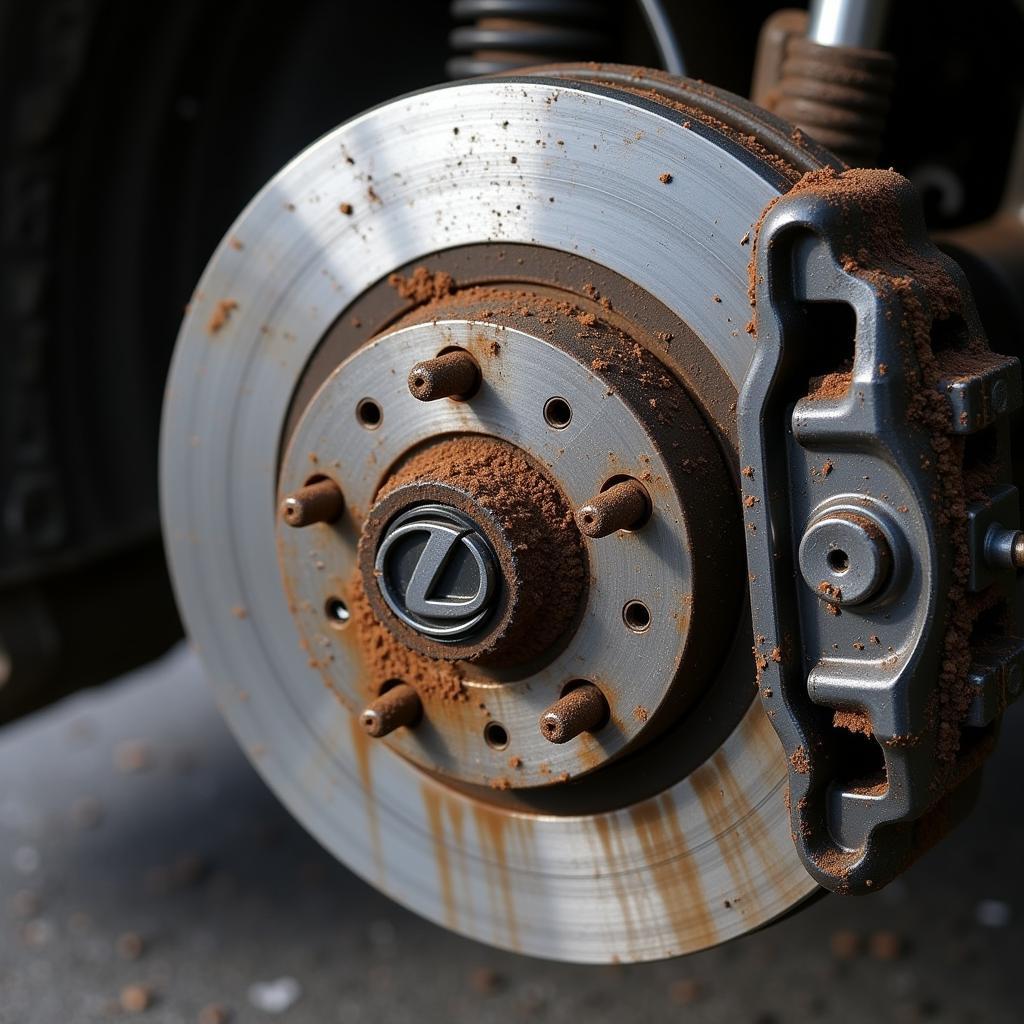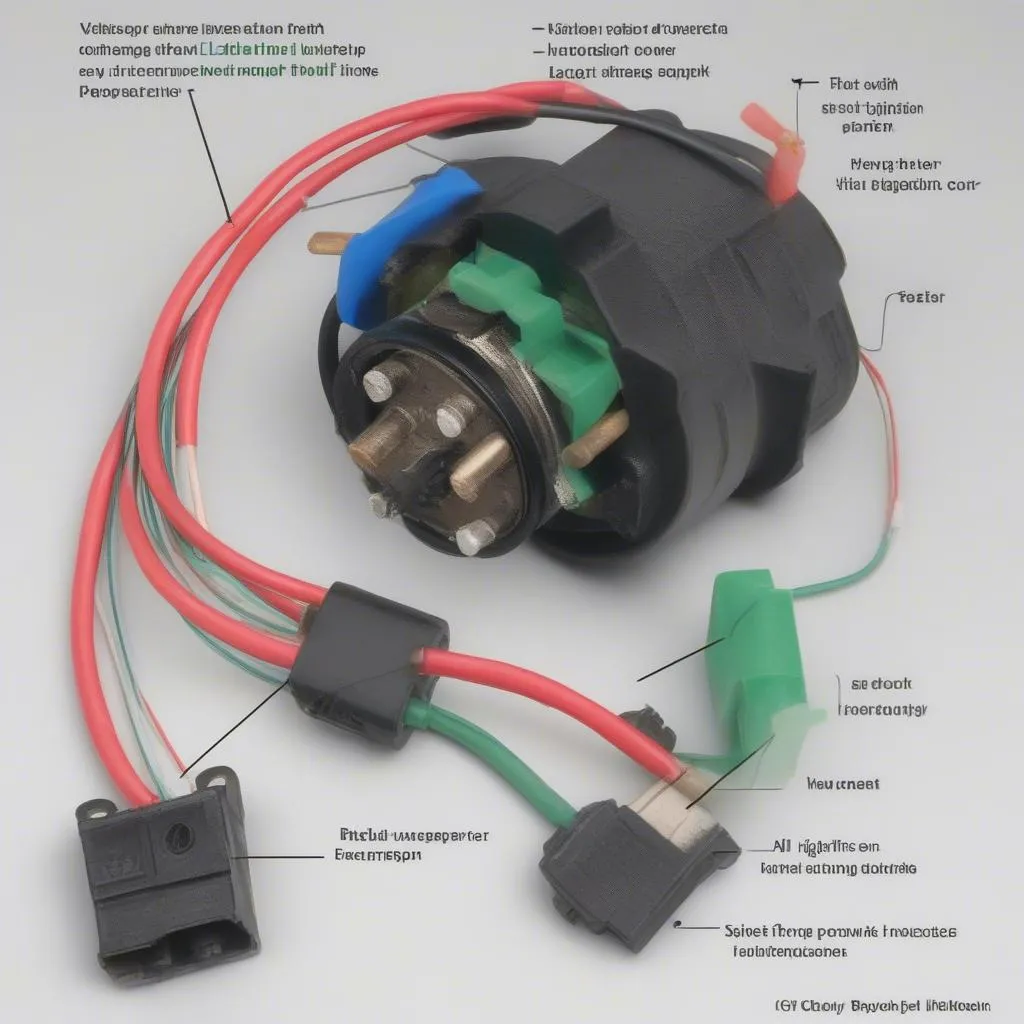A glowing brake warning light on your Lexus dashboard is a clear signal that something isn’t right with your braking system. Ignoring this warning could lead to expensive repairs or, even worse, a dangerous driving situation. This comprehensive guide will delve into the common causes of a Lexus brake warning light and provide potential solutions to get you back on the road safely.
Understanding Your Lexus Brake Warning Light
While the specific design might vary slightly between models, your Lexus brake warning light will typically appear as a bright, often red, circle with an exclamation point (!) or the word “BRAKE” illuminated within it. This light serves as a general indicator for several potential issues within your braking system.
Common Causes of a Brake Warning Light Lexus
There are several reasons why your Lexus brake warning light might be on. Here are some of the most common culprits:
1. Low Brake Fluid Level
Your Lexus, like all cars with hydraulic braking systems, relies on brake fluid to transmit force from the brake pedal to the wheels. If the brake fluid level drops too low, it often indicates a leak in the system, which can significantly compromise your braking ability.
2. Worn Brake Pads
Brake pads are designed to wear down over time. When they become too thin, a sensor within the brake pad will contact the rotor, triggering the warning light. Driving with severely worn brake pads can damage the rotors and lead to significantly reduced braking performance.
3. Faulty Brake Sensors
While less common, a malfunctioning brake pad wear sensor or another sensor within the braking system can trigger the warning light even if no actual problem exists. A diagnostic scan can identify a faulty sensor and help you avoid unnecessary repairs.
4. Issues with the ABS System
Your Lexus’s Anti-lock Braking System (ABS) prevents wheel lockup during hard braking, maintaining steering control. A problem with the ABS, such as a faulty sensor or module, can trigger the brake warning light.
 Close-up of Lexus ABS sensor
Close-up of Lexus ABS sensor
5. Parking Brake Engaged
It might seem obvious, but sometimes the simplest explanation is the right one. If you’ve left your parking brake partially engaged, it can trigger the warning light. Before panicking, ensure your parking brake is fully released.
What to Do When Your Lexus Brake Warning Light Turns On
If your brake warning light illuminates, it’s crucial not to ignore it. Here’s a step-by-step guide on what to do:
- Safely pull over: As soon as it’s safe, pull your Lexus off the road and into a safe location.
- Check your parking brake: Ensure the parking brake is fully disengaged.
- Inspect brake fluid level: With the engine off, carefully open the brake fluid reservoir (refer to your owner’s manual for location). If the fluid level is significantly below the “MIN” mark, do not drive the vehicle. Have it towed to a qualified mechanic.
- Avoid driving if unsure: If you’re unsure about the cause of the warning light or notice any unusual braking behavior, such as pulling to one side or a soft brake pedal, err on the side of caution and have your Lexus towed to a trusted mechanic or dealership for diagnosis and repair.
Lexus Brake Warning Light Reset
In some cases, after addressing the underlying issue, such as replacing worn brake pads or topping off brake fluid, the warning light might need to be manually reset. This procedure varies depending on your Lexus model.
To learn how to reset the brake warning light on your specific Lexus, refer to your owner’s manual or visit our detailed guides for specific models:
- Does Lexus Brake Assist 2016 Include a Warning Light
- 1999 Lexus RX300 Brake Warning Light
- Reset Lexus Brake Warning Light
- All Brake Warning Lights Lexus CT200h
- 2007 LS460 Brake System Warning Light
“Regular maintenance is key to a healthy braking system,” says master Lexus technician, John Anderson. “Don’t wait for warning lights to tell you something’s wrong. Schedule routine brake inspections and follow your recommended service intervals.”
Conclusion
A glowing brake warning light on your Lexus dashboard is a serious matter that should never be ignored. By understanding the common causes and taking appropriate action, you can ensure your safety on the road and prevent potentially costly repairs. Remember, when it comes to brakes, prevention is always better than cure.

